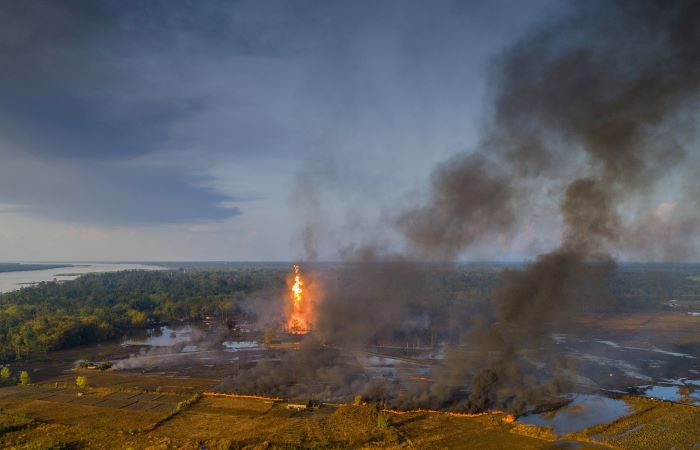The Oil India Limited (OIL) operated oil well which suffered a blowout in the end of May took a turn for the worse on 9 June as a major fire broke out at the well. Locals had been reporting impacts from the uncontrolled leakage of gas from the well for the past two weeks while OIL released a statement saying that the well caught fire during a clearing operation at the site. The deaths of two OIL employed firefighters has been reported so far. The fire is likely to have adverse environmental impacts on the region as the site is located less than a kilometre from the Dibru Saikhowa National Park (DSNP) and only 500 metres from the wetland Maguri-Motapung Beel, an Important Bird Area (IBA). OIL has contacted Singapore-based Alert Disaster Control to help contain the blowout. Members from the Alert team have expressed confidence in being able to cap the well and restore safety.
China excludes ‘clean coal’ from green bonds list
The People’s Bank of China has removed ‘clean coal’ from its list of technologies that would be eligible for financing under green bonds, potentially signalling its future trajectory with the fuel. More green finance will now go towards its renewable energy projects, and into steel mills looking to upgrade their emissions control equipment. Clean coal was placed on the country’s green bonds list in 2015, but had invoked controversy because of the fuel’s environmental impact.
However, this may not affect the country’s pipeline of 6GW of ultra-low emission coal projects sanctioned last year.
Germany unveils new coal plant despite 2038 deadline, IRENA cites falling solar costs
The north-western town of Datteln in Germany has opened the country’s latest coal plant, the 1.1GW Datteln 4 monoblock unit with net efficiency of more than 45%, despite local protests and the country’s looming coal phaseout deadline of 2038. The Datteln 4 plant is expected to heat 100,000 homes with such advanced pollution control technology that it will reportedly have zero NOx, sulphur and dust in its flue gases.
Interestingly, the plant will be owned by Uniper, which is three-fourth owned by Finland’s energy conglomerate Fortum. According to Finnish laws, state-owned enterprises must abide by the Paris Agreement’s 1.5°C target, which may put investment into the Datteln plant under scrutiny.
Also, IRENA’s latest analysis has found that the cost of running new solar plants would be cheaper than the cost for 1,200 GW of new coal plants. It estimates that if developers were to replace the top 500GW of their most inefficient plants with utility-scale solar or onshore wind farms, that alone would save them $23 billion a year and shave off 5% of 2019’s carbon emissions. The claim is supported by the fact that building large-scale solar is now 80% cheaper than in 2010.
IATA latches on to COVID-19 to shirk carbon offset responsibility
The international consortium for commercial aviation, IATA, is using the abnormally low air travel figures for the first half of 2020 to plead for a relaxation to its carbon offset obligations. The mechanism for the offset, known as CORSIA (Carbon Offsetting and Reduction Scheme for International Aviation), would have required airlines to factor in the average emissions for 2019 and 2020 to determine their budgets for funding green projects outside of the sector.
However, ICAO is now calling upon aviation’s governing body, ICAO, to factor in the emissions reduction in 2020 and revise the baseline to pre-COVID-19 levels.
This is because if air travel were to rebound quickly, airlines would have to offset much greater emissions under the current rule than the higher baseline of 2019 alone. Estimates suggest that going back to 2019 levels could shave off between 25-75% of their obligation by 2035. A final decision will be taken in Montreal by June 26.
About The Author
You may also like
India asks power companies to order $33 billion in equipment to boost coal power output
India’s first pilot project for underground coal gasification launched in Jharkhand
Increasing oil and gas production among top priority, says India’s petroleum minister
A faster clean energy transition will make energy cheaper, not more costly: IEA
India’s energy sector: Ten years of progress, but in fits and starts


